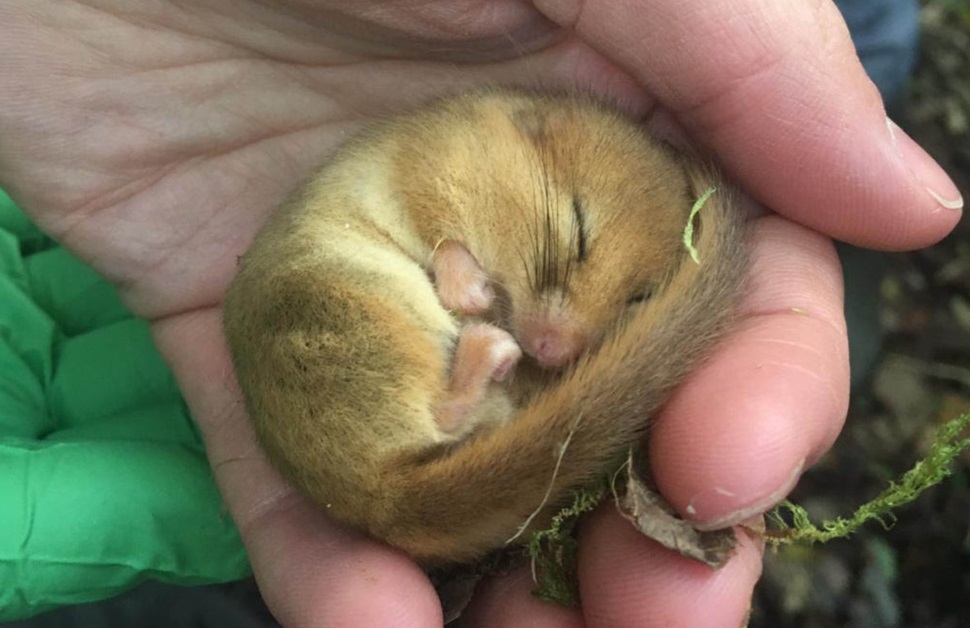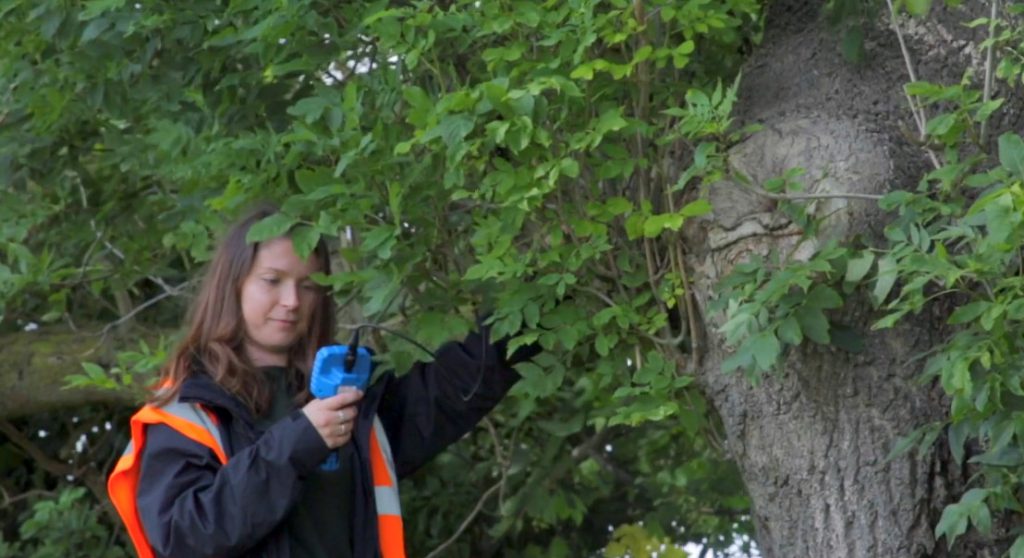Find Out More About Your Survey for Dormice, Water Voles, Otters and Red Squirrels

Unlike certain other inspections that are frequently undertaken to support development such as bat surveys and tree surveys, assessments for dormice (Gliridae), water voles (Arvicola amphibius), otters (Lutra lutra) and red squirrels (Sciurus vulgaris) are relatively uncommon. If your local planning authority has asked you for a mammal survey for any of these animals, however, you should contact one of our ecologists to talk about your development site and how it could potentially be impacted.
Each type of mammal presents any number of unique constraints on development and applications for planning permission. Not only that but – as stringent seasonal restrictions may apply depending on the protected species in question – failing to plan ahead could lead to considerable delays. In the case of water voles and otters, it is far less likely that you will put the habitat these species occupy at risk unless you are looking to develop in close proximity to the bank of slow-moving streams, rivers or even ditches.
Likewise, the distribution and range of the red squirrel are far from broad, making it massively unlikely that developers will be restricted by their presence across the majority of large areas throughout the UK. Alternatively, despite the efforts of domestic cats, dormice are widely distributed across Great Britain, particularly in England and Wales. As such, the local authority will ask for the necessary trapping or scoping exercises to ensure that they have been considered within the development plans. The scoping exercise will aim to provide justification for the trapping exercise, such as the presence of burrows, footprints, latrines, half-eaten vegetation or the remains of prey.
Mammal Surveying
Any number of live animals have the potential to feature on a development site, and due to this, developers need to cater to the likelihood of a particular species suffering as a result of their development plans. At the earliest possible stage, the necessary mammal surveys should be factored into the planning schedule as a method of ensuring that any and all wild mammals are identified and dealt with accordingly, whether it involves changing the plans of the development or initiating sufficient mitigation or compensation measures.
Unless clear evidence has already confirmed an endangered species present on the site, triggering an immediate assessment for the mammal species, the process would usually start with a prior ecology survey, such as a preliminary ecological appraisal (PEA) / extended phase 1 habitat survey. An ecologist will then be able to inspect the site for field signs of European protected species. If they record sightings, recognise evidence of available habitats, or even simply cannot rule out occupancy, a further survey will be needed in the form of a dedicated mammal survey for the species detected.
Through a collection of retrieved data from the assessment, information from existing field guides and the comprehensive insight and expertise of the ecological consultant, a heightened understanding of the mammals on the site can be assembled. It will include confirmation of where on the site they occupy, the species of the mammals, and the population size. From there, the ecological surveyor can advise on changes to the development and site that will ensure the safety of the mammals while simultaneously making it possible for the planning project to continue with only minimal changes.
Survey of UK Mammals
Many of Britain’s mammals are listed as protected within legislation such as the Wildlife and Countryside Act 1981 and the Conservation of Habitats and Species Regulations 2017, meaning they are legally defended from unnecessary harm. It includes any practices that would result in wildlife being killed, injured or captured, as well as broadly being disturbed in any way. With that in mind, it comes as no surprise to learn that planning projects are the primary concern for European protected species, as numerous elements within a proposed development could disrupt animals in the vicinity.
While larger mammals feature within a wide range of protective legislation, the emphasis when it comes to development is on small mammals. Rare and common species appear all over the country, bringing with them countless benefits to the environment and biodiversity. Such a high frequency of inhabitants also means more of an impact on property and land development projects, leading to a firmer emphasis on the need for relevant mammal surveys to address their presence.
Both large and small mammal species are carefully chosen for protection based on dwindling population numbers and a known threat of extinction. The list within the Wildlife and Countryside Act even goes as far as specifying which types of each species are covered. For instance, grey squirrels are present all over the country and therefore aren’t a listed species. Although the red squirrel is legally protected, the situation is different for the grey squirrel due to the unique circumstances, and that is reflected in the legislation designed to protect endangered species.
Applicable Small Mammals and Marine Mammals:
Small Mammal Survey
- Badgers
- Barn Owls
- Bats
- Breeding Birds
- Nesting Birds
- Dormice
- Red Squirrels
- Water Voles
Marine Mammal Survey
- Otters
Mammal Survey Methods
Maintaining consideration of relevant legislation and remaining within the guidelines of corresponding regulators and organisations, the ecology team at Arbtech guarantees that all assessments are conducted correctly. All surveyors are directed to attend a rigorous training programme that gives them a universal approach to undertaking inspections, and even before then, they are sufficiently licensed and qualified to manage mammal surveys on behalf of our clients.
Based on up-to-date information and input from Natural England and Natural Resources Wales, the mammal society, and the Department for Environment, Food and Rural Affairs (DEFRA), we can provide assurances that our services will produce all of the evidence required to meet the needs of the planning officer and the local planning authority. Data from the site and measures that account for present wild animals should prompt no further reason for the local council to reject your planning application.
Different Ways to Survey Mammals
The endangered species at the heart of a mammal survey will dictate the inspection itself, altering how ecological consultants in charge of the assessment approach the process. As a simple example, it would be easy to assume that an investigation of otters would be aligned differently compared to one of red squirrels. As a consequence, our team sensibly opted to grow knowledge of various mammal surveys alongside awareness of the distinctions between them.
In the section below, you will find snippets of information surrounding the techniques and equipment we use for this category of assessment:
Mammal Survey Techniques
An assessment of wild mammals may include any number of techniques, such as:
- Call identifying
- Hand capturing
- Scent masking
- Tracking
- Trapping
- Noosing
- Sampling
- Stalking
- Video surveillance
Mammal Survey Equipment
Tools that are frequently used in assessments of wild mammals include:
- Binoculars
- Detectors
- Electronic and light spring scales
- Exclusion gates
- Footprint tunnels
- Handling gloves
- Hook and loop strapping
- Longworth and Sherman traps
- Mammal holding and polythene sample bags
- Marking flags, pellets and tape
- Mist and Wallaby nets
Organise a Mammal Survey
Prior to booking an inspection of small mammals on your development site, it may help to understand the cost of a small mammal survey and the potential seasonal constraints. Even if they share the same species or come from the same animal group, each European protected species is different. As such, growing an understanding of any that could impact your project would only benefit you in the long run, particularly if you are under the impression that they are present in the local area.
The ecology team at Arbtech has seen every possible issue caused by and inflicted on rare and common species of mammals, leaving us perfectly suited to help with any problems you may face that stand between you and a successful application for planning consent. Using the relevant information, you can then plan ahead, work the required mammal surveys into your development plans, and ensure that you don’t suffer negatively from failing to have inspections of Britain’s mammals in place.
Estimated Cost of Mammal Surveys
Although a baseline cost is in place for every form of assessment we carry out, the total price our clients pay will be based on the specific details of their development site and planning project. It isn’t to say that all ecological consultancies approach quotes in this way, but by doing this, we can prevent homeowners and private clients from paying the cost of a survey for a major development on a large piece of land, for example, even if they are only managing a minor development on a small piece of land.
One of the most unique attributes of Arbtech is the intention to assist each client accordingly with tailored solutions. Part of this is the way we create quotes for clients, starting with the baseline before adding on the price based on how much it would cost on the specific development site. We also subsidise unnecessary costs elsewhere, such as the price of travel for our surveyors through designating consultants all over the country to hold jurisdiction over each area.
Best Time to Survey Mammals
Behaviours of endangered species can vary significantly from one to the next, and due to this, the optimum time for surveying them has the same effect. Our surveyors will generally attend a site early in the morning where possible if it means observing the mammals when it is quiet and they are undisturbed, but that isn’t necessarily applicable to all species we undertake inspections on.
As an indication of the contrast between the seasons of small mammal surveys, the optimal time for barn owl surveys is year-long from January to December and surveys for breeding birds and nesting birds both start in March, but end in June and August. Elsewhere, dormouse surveys span between April and November, bat surveys between May and September, and badger surveys between October and April. Certain types of surveys overlap too, with great crested newt surveys and reptile surveys occurring between April and May, and water vole surveys and most invasive species surveys between April and September.
You can find more information on the optimal times, suboptimal times and periods outside of survey season on our ecology survey calendar.
Choose Arbtech as Your Service Provider
If there is suspected or proven occupancy of any of Britain’s mammals that are considered an endangered species on your development site, speak to the team at Arbtech. You can call us directly, email us, complete a quote form or get in touch via our contact page, and from there, we can take down information about your site and planning project before pointing you in the right direction.
Once we have determined what exactly you need, we will provide you with a free quote for opting to consider us as your service provider. With no obligation to continue with us, you can look over the quote, and if you are happy with it, let us know, and we can choose a date for conducting a mammal survey on your site. One of our ecological surveyors will then attend your site on the chosen date, undertake the assessment, record sightings, implement adequate mitigation and compensation measures where necessary, and help you with seeking planning acceptance.

